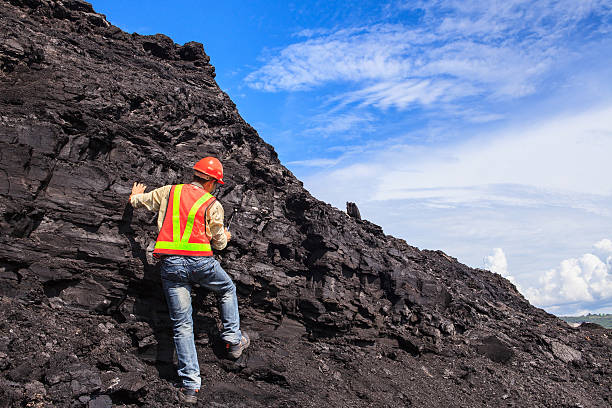Manoj Singh, ex ACS, UP Govt
Lucknow: For centuries, geologists stood as interpreters of Earth’s history — reading rocks like archives, reconstructing past climates, finding vital resources, and warning of natural hazards. They were guardians of knowledge about our planet’s deep time and practical guides for humanity’s search for energy, minerals, and stability. Yet in recent decades, many observers argue that the role of the geologist has entered a phase of decline — not because geology is less important, but because the world has shifted in ways that obscure its value.

1. From Heroic Explorers to Invisible Experts
In the 19th and 20th centuries, geologists were at the forefront of exploration. They mapped continents, discovered fossil fuels, and helped build industrial economies. Their expertise literally powered the modern age — from coal and oil to copper and rare earths. But as exploration became increasingly technological, aided by satellites, drones, and big data, the public image of the “field geologist” faded. Today, geology often survives quietly within engineering firms, energy companies, or universities, rarely celebrated as a public science.
2. Industry Shifts and Career Uncertainty
Traditionally, geology provided stable careers in oil, gas, and mining. But these industries are undergoing upheaval:
Oil and gas: As the world turns toward decarbonization, exploration budgets shrink. Many petroleum geologists face layoffs, re-skilling, or precarious short-term contracts.
Mining: Demand for critical minerals (lithium, cobalt, rare earths) is rising, but mining increasingly relies on remote sensing, AI-driven exploration, and automated extraction — reducing demand for large numbers of field geologists.
Academia: Funding priorities have shifted toward climate science, environmental studies, and data-driven earth system models. Pure field geology departments are closing or merging into broader “Earth sciences” units.
This restructuring has left many young geologists uncertain of their futures, feeling caught between fading industries and emerging ones that don’t always value traditional skills.
3. The Overshadowing by Climate and Data Sciences
Ironically, geology’s greatest insights — about planetary change, resource limits, and extinction — are more relevant than ever. But in the climate age, geologists have been partially eclipsed by climate modelers, atmospheric physicists, and data scientists. When policymakers discuss global warming, rising seas, or disaster preparedness, they often turn to climate scientists and engineers, while geological expertise — about soils, erosion, tectonics, and deep history — is consulted later, if at all.

Thus, the geologist, who understands Earth as a slow, complex, interconnected system, risks becoming a backstage figure in a drama that geology itself helped script.
4. Public Perception and Identity Crisis
Another dimension of decline is cultural. Geology has long been associated with extractive industries — coal mines, oil rigs, quarries. In an age of environmental awareness, this legacy sometimes taints geology’s image. The public increasingly views geologists not as stewards of Earth but as enablers of environmental destruction. This unfair generalization ignores the fact that many geologists now work in environmental restoration, hazard assessment, groundwater protection, and climate adaptation. Yet the profession struggles to redefine its identity in the public eye.
5. Is It Truly a Downfall, or Just a Transformation?
Some argue it is not a downfall but a transition. Geologists are finding new relevance in areas like:
Climate change adaptation (understanding past climate to predict future shifts).
Hazard mitigation (earthquakes, volcanoes, landslides).
Sustainable resource management (critical minerals, geothermal energy, groundwater).
Planetary exploration (NASA and ESA rely heavily on planetary geologists for Mars, Moon, and asteroid missions).
If the 20th-century geologist was an oil finder, the 21st-century geologist may be an Earth steward — focused on sustainability, resilience, and planetary futures.
Between Marginalization and Renewal
The “downfall of the geologist” is less about irrelevance than about invisibility. Geologists still hold crucial knowledge, but their voice is muted in a world dazzled by digital tools, algorithms, and renewable dreams. The real danger is not that geology ceases to matter — but that society forgets how much it does.
In the end, the discipline’s survival depends on reinvention: embracing interdisciplinary science, engaging with public concerns, and reclaiming its place not just as a resource finder, but as a guide to humanity’s long-term survival on a restless planet.









